|

|
|
Patient Information and Directions for Use
Zovirax Cold Sore Cream contains the antiviral agent aciclovir (5% w/w) in a smooth, white cream containing propylene glycol.
WHAT IS YOUR CREAM FOR?
Zovirax Cold Sore Cream is for the treatment of cold sores. Clinical studies show that early treatment with Zovirax can prevent a cold sore developing. If your cold sore has already broken through the skin then treatment with Zovirax Cold Sore Cream can speed up the healing process. Previously, this treatment has been available only with a doctor’s prescription.
To help you understand why you get cold sores and to make sure you use Zovirax Cold Sore Cream correctly, please take the time to read this leaflet carefully.
KEEP OUT OF REACH OF CHILDREN.
FOR EXTERNAL USE ONLY.
BEFORE YOU USE YOUR CREAM
Only use the cream on cold sores on your lips and face. Do not use the cream inside your mouth Zovirax Cold Sore Cream should NOT be used to treat mouth (aphthous) ulcers. If you are in any doubt whether your sore is a cold sore, consult your doctor.
If you have ever had an allergic reaction to aciclovir or propylene glycol, consult your pharmacist or doctor before using your cream.
Do not use Zovirax Cold Sore Cream for herpes infections of the eye or the genital area.
If your cold sore is, or becomes, very severe you should consult your doctor.
Do not use Zovirax Cold Sore Cream if you are under the care of a doctor because of a weak immune system (i.e.: your ability to light infections is reduced)
|
|
HOW TO USE YOUR CREAM
The amount of cream inside this pack is enough for one cold sore attack. Ideally, you should keep a pack of cream with you, so that you can start treatment of your next cold sore as soon as it begins.
It is important to start treatment as soon as you feel a cold sore developing |
Many cold sore sufferers can recognise when they are about to get a cold sore, e.g: tingling, itching.

When used at the tingle stage, Zovirax Cold Sore Cream can |
prevent the cold sore from developing
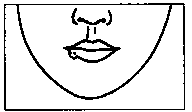
If the blister does develop, using Zovirax Cold Sore Cream can speed up the healing process. |
Please follow these instructions carefully
- Wash your hands before and after treating the cold sore so as to avoid making it worse or giving the infection to someone else.
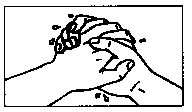
|
Apply the cream liberally to completely cover the whole of the affected area.
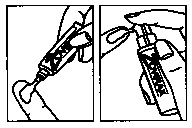
|
Apply to the affected area 5 times daily about every 4 hours. If you forget a treatment apply some as soon as you remember, then continue as before.
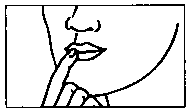
|
- Continue treatment for 5 days.
If your cold sore has not healed after this time, treatment may be continued for up to a further 5 days. If full healing has still not occurred after 10 days, or if your cold sore becomes very severe, consult your doctor. |
Do not exceed the stated dose.
|
continued
AFTER USING YOUR CREAM
This cream has been prescribed to millions of people by doctors, and is normally well tolerated. However, some people may get the following:
- A mild burning or stinging may sometimes occur directly after application, but this will quickly go away.
- Occasionally, redness, itching or a mild drying or flaking of the skin may occur. This does not prevent the cream from working.
- If in doubt, or if these side effects become troublesome, stop the treatment and consult your pharmacist or doctor.
STORING YOUR CREAM
Keep your cream in a sale place where children cannot reach it. Store it at room temperature (below 25°C) but do not keep it in a refrigerator. Do not use after the expiry date noted on the pack.
REMEMBER:
Remember to treat your cold sore for at least five full days to ensure rapid healing.
This treatment is for YOU. It is only available from pharmacies. Never give it to others,
even if their symptoms are the same as yours.
Zovirax Cold Sore Cream is not harmful if swallowed.
Although some irritation in the mouth may occur, no action is required H Zovirax Cold Sore Cream
is swallowed.
Date of last revision of leaflet: May 1995
Zovirax is a Trade mark of The Wellcome Foundation Ltd
|
MORE ABOUT COLD SORES
A cold sore is an infection which is caused by the herpes simplex virus (HSV) which is Iying dormant in nerve cells supplying your lips and the surrounding skin.
When does the infection occur?
The first infection usually occurs in early childhood, probably after being kissed by a person with a cold sore. The virus passes through the skin travels up a nerve and stays in a nerve junction until reactivated.
What can reactivate the virus?
Various things, including colds, flu, menstruation, fatigue, emotional upset, stress, physical injury, bright sunlight and simply when you are feeling run down . Once reactivated, the virus travels back down the nerve to the skin on and around your lips where it causes the cold sore to develop. |
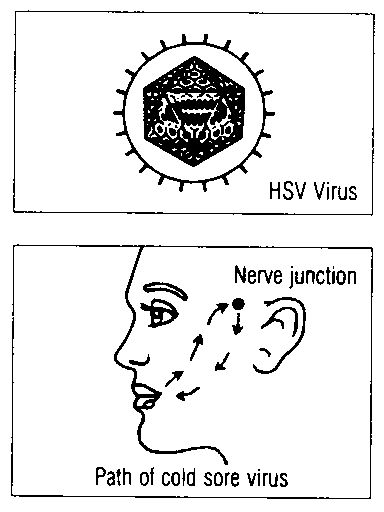
|
Remember - Cold Sores are infectious
The virus is capable of infecting other parts of the body. To reduce the risk of passing the infection on, do not allow others to touch your cold sore, or to share your towel, etc. You should avoid kissing and oral sex if you or your partner has an active cold sore. Always wash your hands before and after touching cold sores.
- Avoid touching your eyes. HSV infection of the eye
|
Avoid breaking the blisters and picking the scabs can lead to ulcers on the window of the eye. Not only could you infect your cold sore with other (cornea) germs, you may infect your fingers with the virus. |
|
Avoid kissing - especially children - when you have a cold sore |
Avoid sharing your eating and drinking utensils.
|
For further information about cold sores or Zovirax Cold Sore Cream contact: Customer Advice Bureaux,
Warner Wellcome Consumer Healthcare, Lambert Court, Chestnut Avenue, Eastleigh, Hants., 5053 3ZQ.
Pottery Road, Dun Laoghaire, Co. Dublin, Rep. of Ireland.

1/5584 95.03 Copyright 1995






